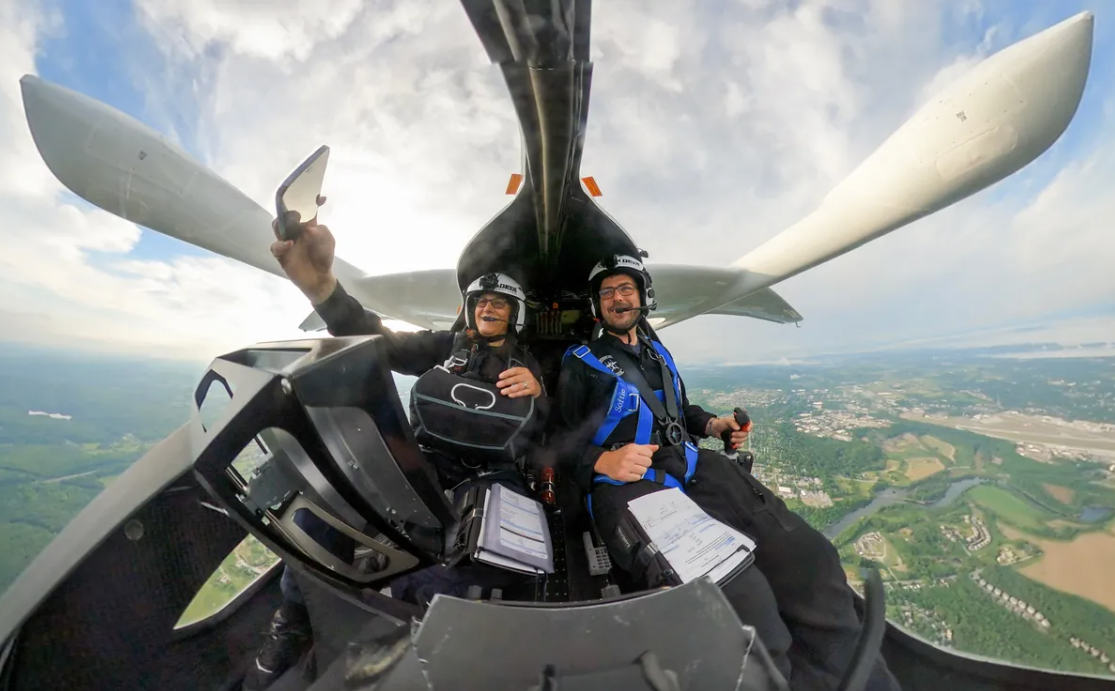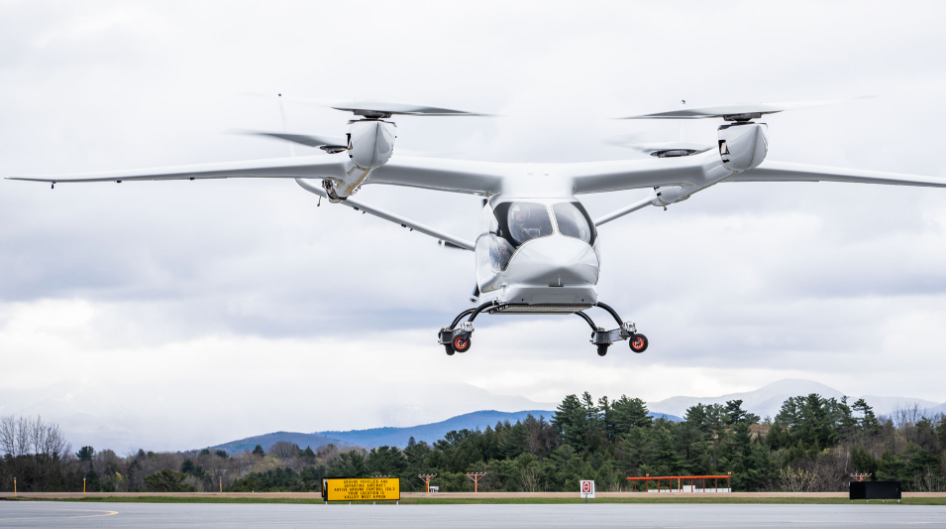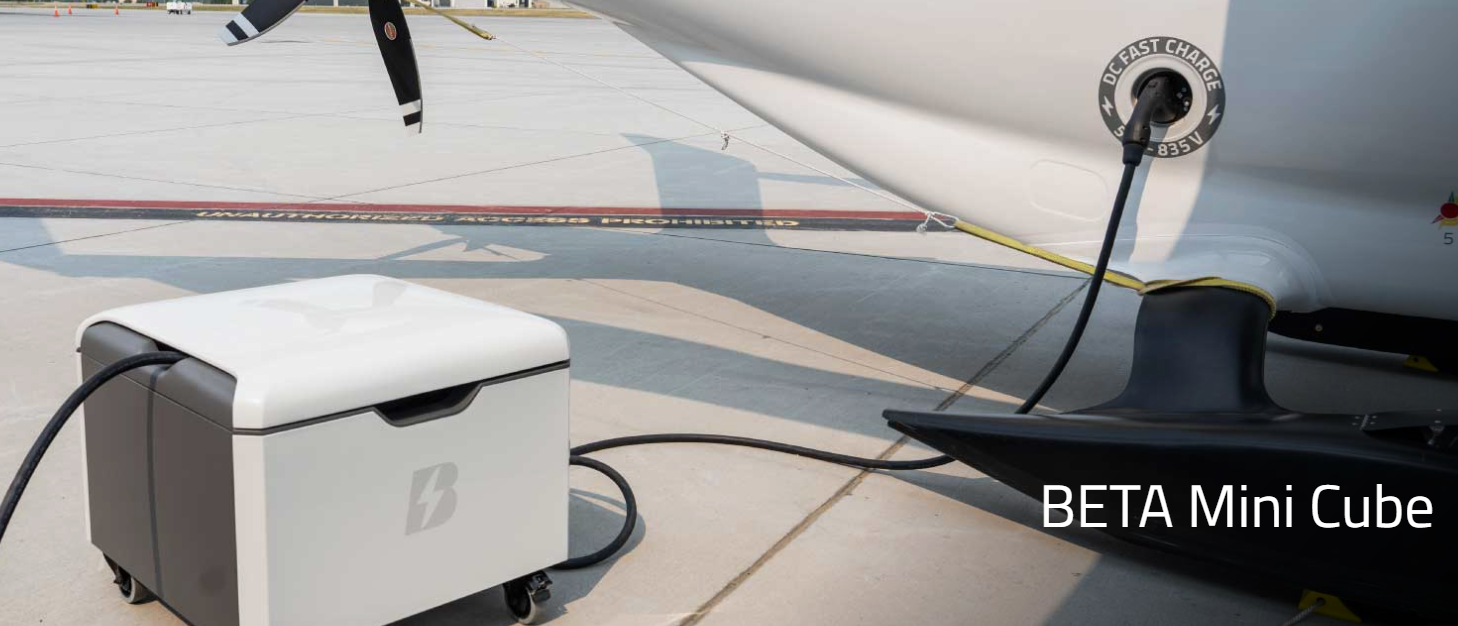Pivot #17: The Billionaire Hockey Player You’ve Never Heard Of

He’s 6’6 and holds the USA Hockey NTDP single season record for penalty minutes with 287 PIMs. To make an extra buck in the college hockey offseason, he worked as a bouncer and barback wrestling drunks who stumbled in after Red Sox games. He was drafted by the Washington Capitals and left college hockey early to put his fists to better use in the minor leagues. But for all the brawn that propelled Kyle Clark’s hockey career, his brains are helping him become one of the greatest innovators and entrepreneurs of his generation. That’s not an exaggeration. An industry peer describes Kyle Clark as, “The most impressive polymath I’ve ever met. He has the most broad-based collection of skill sets and experience in physics, aerodynamics, structures, propulsion, and electric motors. He’s remarkable.”
Kyle Clark is the CEO and Founder of BETA Technologies, a leader in the electric vertical takeoff and landing aircraft (eVTOL). BETA aircrafts take-off and land like a helicopter, but fly like a plane, and they are battery-powered. The company completed a Series B funding round in 2022 that saw Fidelity and Amazon invest at a $2.4 billion valuation. With a customer base that already includes the U.S. Air Force, U.S. Army, UPS, United Therapeutics, among other large enterprises, BETA’s growth trajectory is likely to lead to an eye popping new valuation. It’s a clear unicorn in the venture investing world. How does Clark find him in the position he sits today?
Hailing from small-town Vermont, Clark’s upbringing clearly impacted his non-athletic pursuits. Clark’s father ran the instrumentation facility at the University of Vermont for nearly 50 years, meaning Kyle had carte-blanche access to the machine shop. From an early age, Kyle tinkered with metal scraps constructing airplane parts and subliminally building his engineering tuition. Kyle’s mother is an artist and entrepreneur, instilling the required grit for life as a start-up founder and the creativity embedded in product design.
In high school at Phillips Exeter Academy, Clark was a three-sport athlete in hockey, football, and lacrosse. By his senior year, the U.S. Under-18 hockey team came calling, so Kyle joined the program for his final year of high school. Kyle was named team captain for his lone season with Team USA, earning the respect of teammates with his physical play, and ultimately parlaying the opportunity into playing college hockey for the Harvard Crimson.
After his freshman year at Harvard, Clark, a right-wing, was drafted by the Washington Capitals with the 175th overall pick in the 6th round. After three seasons at Harvard, Kyle pursued pro hockey, spending a couple years in the Caps system where he played 77 games between the AHL and ECHL racking up 320 PIMs.
The seeds for BETA Technologies were already beginning to materialize. Kyle spent his signing bonus from the Caps on getting his pilot's license and after two pro seasons Kyle resumed his education at Harvard, completing his degree in materials science engineering. Kyle won ‘Paper of the Year’ at Harvard for his senior thesis, BETA Air, where he designed a flight-control system for a hybrid-electric aircraft. The thesis would eventually become the origins of his business pitch.
After graduation from Harvard in 2004, Kyle is still 12+ years from the formal start of BETA, but his work in the interim proved crucial from an experience and capital perspective. During an internship with Husky Injection Molding, Clark became aware of a problem in thixotropic magnesium molding, a technique used to produce strong and lightweight parts out of magnesium. To tackle the problem, Clark and a few other partners started the company other, iTherm. Clark got his first applicable experience in electrical engineering as he was tasked with creating power supplies robust enough to withstand high-impedance induction heating that the magnesium molds depended upon.
iTherm was a success and sold to Dynapower, an energy storage company in Vermont that was owned by private equity firm Pfingsten Partners. Either concurrently or around the same time, Kyle started another company, Energy Management Systems (EMS) that appears like he may also have sold to Pfingsten too. Interestingly, in 2022, Pfingsten sold Dynapower to Sensata Technologies, a public company, for $580 million in cash. Overall, Kyle earned two “quick” wins with iTherm and EMS that provided him critical experience for his next ventures, but most importantly, likely provided the start-up capital for BETA. If I had to guess, I’d say Clark netted an eight-figure windfall between the sale of his two companies.
The beginnings of BETA date back to an impromptu presentation Kyle gave on electric aviation and the design of a power system for a new electric helicopter. Among the small audiance was billionaire founder of SiriusXM Radio, Dr. Martine Rothblatt, who was impressed with Clark’s insight and possessed a keen sense of interest in novel aviation innovations. In 1996, motivated to save her daughter from a rare heart condition, Rothblatt created United Therapeutics, a company with a mission to develop new, life-extending technologies for patients with rare diseases. United Therapeutics is now a public company with over a $10 billion market cap.
In the months thereafter the presentation, Clark and Rothblatt built a relationship, fleshing out thoughts on aviation and business prospects. In 2017, the pair forged a 50/50 partnership, each kicking in $1.5 million and BETA Technologies was formed. There was one caveat. The intended use case for aircrafts would be for transplanting organs, tissue, and blood products for life-saving medical procedures and United Therapeutics would be the first customer. Eight months later, working off a $3 million budget, BETA built and flew their first eVTOL, Ava, which turned out to be the largest electric aircraft in the world at that time.

United Therapeutics was developing in-house organ transportation services, but with the success of Ava, Rothblatt wrote a $48 million check to BETA as its first customer, completely outsourcing transportation. Rothblatt, who sits on the BETA board today, set the course for BETA as an eVTOL manufacturer intended for more utilitarian uses. Think of the company’s aircrafts as an F-150 in the sky, catering to logistics, 3PL shipping, and military requirements.
The industrial bend to the business model differentiates BETA from the other large competitor in the space, Joby Aviation, who went public via a SPAC backed by LinkedIn founder, Reid Hoffman, in 2022 at a $6 billion value. Joby acquired Uber’s electric aviation business and boasts investors such as Toyota and Intel. The company caters more to people transportation over short distances. Think of a small group of people traveling from Greenwich, CT to Manhattan. Joby now trades on the New York Stock exchange at a $3.8 billion market cap.
The BETA business strategy is interesting to note. There are virtually unlimited logistic related use cases for electric aircrafts that can complete sub-300 mile trips. Think about Amazon alone. Imagine the efficiencies gained by delivering packages to downtown metros via air without needing a runway for take-off or landing. Then start thinking about UPS, FedEX, USPS. Contemplate all the supply chain efficiencies for large corporates. There’s probably a viable business in only supplying aircraft to the U.S. military. The point being, the tangible addressable market gets huge quick. BETA will have millions of flights logged over the next decade. The bottleneck will be their ability to manufacture and train pilots. Meanwhile, competitors and the hundreds of tiny startups aiming to use the same sort of aircraft to transport people will likely have a tiny fraction of the flying experience due to liability of carrying people and FAA approvals. At some point in the future, BETA will be better positioned to capture market share for passenger travel after proving its flying capabilities via industrial flight experience.
Today, BETA is over 600 employees with facilities in Burlington, VT, Plattsburgh, NY, and Montreal, QC. It’s flagship aircraft now is the Alia. On a single charge customers have flown up to 380 miles, but it is anticipated most customers will use the aircraft for flights in the 100-150 mile range. The U.S. Air Force took delivery of their first orders last fall, including their own charging station manufactured by BETA.

In addition to aircraft, BETA develops and manufacturers its own recharging cubes for electric aircraft and ground vehicles. BETA’s charging network is being built out now. They have 9 publicly accessible electric chargers online, more than 55 sites in permitting or construction, and plans for nearly 150 online by 2025. BETA is partnering with airports, FBO’s, and OEM’s to deploy this technology and enable the future of aviation and electric transportation.

I think it’s very safe to say Kyle Clark is a billionaire (at least on paper) or will soon be a billionaire. BETA has gone through two financing rounds. The Series A round in the spring of 2021 valued the company at $1.4 billion with $368 million investments from Fidelity and Amazon’s Climate Pledge Fund. The following year, BETA’s Series B financing proved a $2.4 billion valuation, adding TPG Capital as an institutional investor.
My estimate is that the original founders, Kyle and Martine, own ~70% of BETA, although it’s unclear how much equity has been granted to employees. Kyle still maintains operational control, but we will assume his share of ownership is in the 30-40% range. The next round of financing/monetization of the company will be interesting. BETA is likely a viable public market candidate, but the exact valuation to place on the company is nuanced, for sure. Joby is the most pure-play comp at a $3.8 billion equity value. It appears they have close to $0 in sales. Boeing is a dumpster fire, but them and Airbus are about $120 billion market cap companies. BETA is likely taking share from the trucking industry initially as opposed to competing with aircraft OEMs. Investors will have to value BETA’s battery business segment, which could be equally as valuable as the eVTOLs. Finger in the air, I could easily see BETA Technologies going public at a $10 billion valuation with a lot of headroom for growth. That implies Kyle Clark, the bruising, penalty box frequenter, unicorn founder would be worth $3-4 billion. It’s totally within reason this is a $100 billion opportunity. If that’s the case, I’ll let you do the math.
A hockey player is literally making the futuristic, flying car, Jetsons cartoon vision of the world come to life in real time. Incredible story. BETA Technologies warrants an additional write-up at some point, possibly looking more in-depth at the business and interviewing Kyle. From afar, Kyle Clark is the most interesting hockey person I’ve come across. To wrap up, below are a few quick-hit career insights I stripped out from researching Kyle and his endeavors.
- Tinker - Kyle spent his childhood tinkering in his dad’s machine shop. This allowed him to understand his own interests and skillset. The self-discovery is critical, so that when your hockey career is over, you can hit the ground running on your next mission. Regardless of your age, tinker, explore, mess around in whatever field you’re interested in.
- “No paper projects ever fail” - Wisdom from his father, Kyle was encouraged to actually put plans into action. You learn by doing. Use this as motivation to take action. Whether it’s building the world’s next aircraft or just making a phone call to a business contact. Take action. Inch forward each day in your
- Remove the barriers - Think big. Do not sell yourself short. Do not be self-limiting.
- Do not underestimate compounding over time - Does inventing the world’s first electric aircraft sound daunting and impossible? Yes. But when you take a first principles approach and work at it over two decades, all of a sudden it slowly becomes more realistic. Kyle started this “idea” with a college thesis paper. Slowly over time he built the skills, capital, and relationships to create BETA. Slow compounding over a long time horizon goes a long way. I point this out, because this flies in the face of a lot of the “hustle” culture that people espouse on social media.
Game Notes
- Toronto tall tales of Zach Edey: On the ice, the diamond … and ‘What’s a Purdue?’ - The Athletic
- Harvard forced to finance with debt - The Crimson
- Nvidia is Silicon Valley's hot employer - WSJ
- Sweden joins NATO - Reuters
- Costco raised prices on one of its most popular items - The Street
- Steve Job's best 3 management tips - Yahoo Finance
- NFLPA Team Report Cards - NFLPA
- Recycling doesn't work and the industry knew - New Republic
- More is never enough - 330 Ramp
- The hockey team that inspired 'Slapshot' - The Athletic
Thanks for reading. Pass along to a teammate. Comment below.

Member discussion